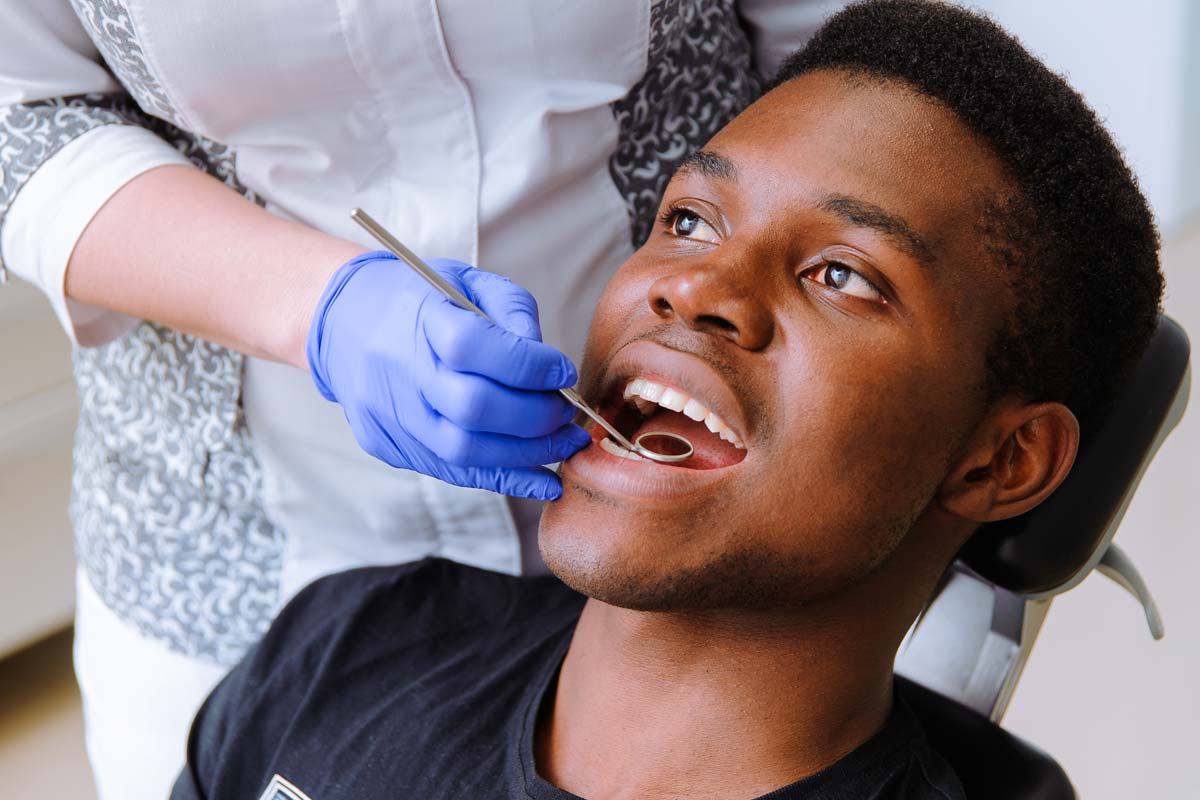You invest a lot of time and possibly money in your teeth. So you want and need them to last you a lifetime. But the truth is that bad habits can cause teeth to chip, move, and fall out. So let’s take a look at how to prevent teeth shifting.
1. Be Mindful of How You Work
If you tend to slouch and lean on your hand while you work, study, or watch Netflix, you’re putting excessive pressure on your teeth. This is problematic because you don’t see your teeth moving. You may notice that your teeth, cheek, or jaw is sore after an extended period. Don’t ignore that feeling. Any time you put excessive pressure on the jaw or mouth, you’re slowly moving your teeth. If this behavior is a force of habit at this point, then you’ll need to replace that behavior with a more ergonomic work set up. Make sure your computer screen is a proper height for you. Use risers or books to adjust it if not. Check to ensure your seat is supportive and adjust your chair. Make sure that your chair close enough to the desk so you don’t have to slouch.
2. Address Clenching
Also called teeth grinding or bruxism, clenching can do a lot of damage to teeth. You’re capable of applying 70 pounds of pressure with your jaw. That’s enough to shatter teeth and break the jaw, so it’s certainly enough to move your teeth.
Your dental provider can offer solutions for teeth clenching like:
- Mouthguards
- Muscle relaxers
- Stress management techniques
- Botox
Additionally, if overwhelming anxiety is a significant factor, you may want to speak with your medical doctor about anxiety medication and treatment.
3. Change Your Sleep Habits
Do you fall asleep almost completely face down on a firm pillow? If so, you’re putting incredible pressure on your teeth. Often, to prevent teeth shifting, you must small adjustments to your patterns. Get a softer pillow, or get a thigh pillow to put between your legs if you sleep on your side. The latter keeps your spine more aligned, so you’re not putting so much weight on your face. On top of shifting the teeth, some studies link side sleeping to increased facial wrinkles on your preferred sleeping side, so there’s one more reason to change this habit!
4. Brush and Floss
You won’t be surprised by this one. If you want to know how to prevent teeth shifting, take care of your teeth and gums. Failing to brush leads to tooth decay and gum disease. Both of these weaken the tooth’s roots. It’s more likely to shift. Add that to some other behaviors we’ve discussed, and you may notice teeth shifting very quickly. They may even fall out, and then you’ll need dental implants to prevent bone loss in the jaw.
5. Keep Your Regular Dental Appointments
If you’re seeing an orthodontist, then this applies to them as well. They can assess how your retainer fits to make sure your teeth aren’t shifting back after braces removal. Your general dentist will both clean the plaque you miss and assess the health of your teeth and gums to make sure you’re not creating an environment in which teeth shift quickly. This is another way you can prevent teeth from shifting.
Contact Lovett Dental Heights Today
Avoid any activity that puts prolonged pressure on your mouth. And please attend to smart oral hygiene. If you’re clenching, see a professional. Lovett Dental Heights can help you with clenching and more, such as:
- General dentistry and cleaning
- Extractions
- Root canals
- Pediatric dental care
Love your smile and keep it healthy. Call us at 832-767-2210 to schedule a checkup.







